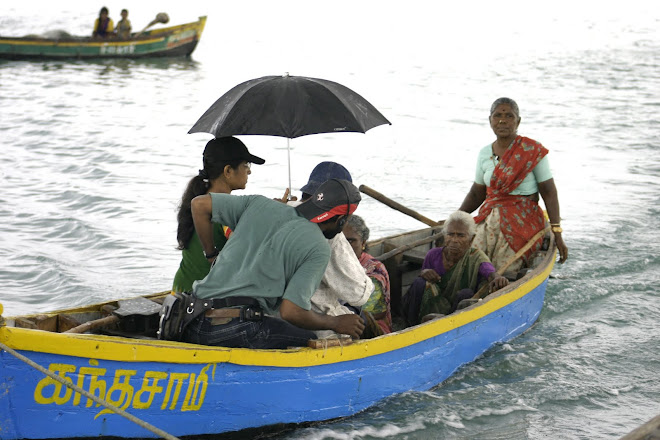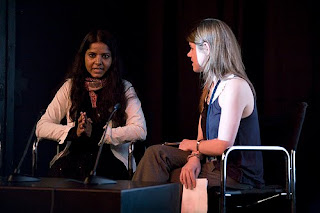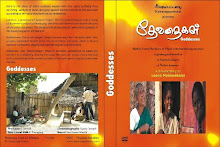By Aijaz Gul
http://www.fipresci.org/festivals/archive/2008/mumbai_doc/goddesses_agul.htm
The Indian documentary Goddesses is one of the best documentaries seen in years. Director Leena Manimekalai may be an engineer by profession but she has worked in the media and knows all about the creative aspects of digital filmmaking, production and editing.
Leena's Goddesses is no ordinary film. Filmed on HD in 2007, it runs for only 42 minutes and still jolts you, interests you and, above all, enlightens you on what women in India can achieve in spite of the bare minimum they have to live on.
Goddesses grabs you from the beginning with its extraordinary characters. The women are aged, ugly, dirty and fat. They are dressed in gaudy and dirty saris. They are the people you would not like to see, let alone meet with pleasure. Why would Leena or anyone make a film on these women! The answer is that these are the most interesting characters on screen. They are the women from Tamil Nadu, single and brave. They are the lowest in social strata but they don't give a damn. They earn just a handful to feed themselves but help others from their meager earnings. They are not moving mountains or changing the Tamil Nadu society but simply surviving and yet serving the purpose in what they are doing.
Lakshmi is a professional singer and dancer at funerals. People in Tamil Nadu actually invite professional mourners to bring them (and others) to cry at funerals. The more Lakshmi dances, sings out loud, beats her chest and the drummers bring out the ear-shattering sound, the more the family sheds tears and joins in chest beating. It is rather grotesque and morbid doing that in front of the dead body of the grandmother.
Krishnaveni is our second heroine who makes her living by burying and cremating unclaimed dead bodies from the rivers and streets. She carries them in a partly broken worn out cart. She gives these corpses bare minimum burials. She digs ditches outside the village and dumps the bodies in with or without the help of a couple of other males. No emotions, no sentiments, no grief, just matter-of-fact rituals performed day in and day out. Krishnaveni talks her heart (and lungs) out to the camera on how she has survived in the ruthless man's world. She curses the men folks who have used her over the years to relieve themselves of their physical needs and lust. And then she pays them back in the same currency. She knows all the policemen around and has even been in the slaughterhouse business, selling meat on the streets. She was born streetsmart.
The third woman Sethuraku never went to school and instead took to the sea at an early age. Now she has aged and earns her living through fishing which everyone knows is a man's job. She goes to sea which no other women could imagine, let alone do it. With modern fishing gadgets and machinery used by others, there are days when she returns empty handed and knits small shells into strings to make ends meet by making cheap trinkets.
The director captures these three women in their reality, with their loud gestures and even louder street talk. Goddesses is a powerful yet risky commentary which only a rare filmmaker would choose to film. Leena Manimekalai has done it brilliantly and with simplicity without unnecessary production effects or the razzle-dazzle of film technology.











